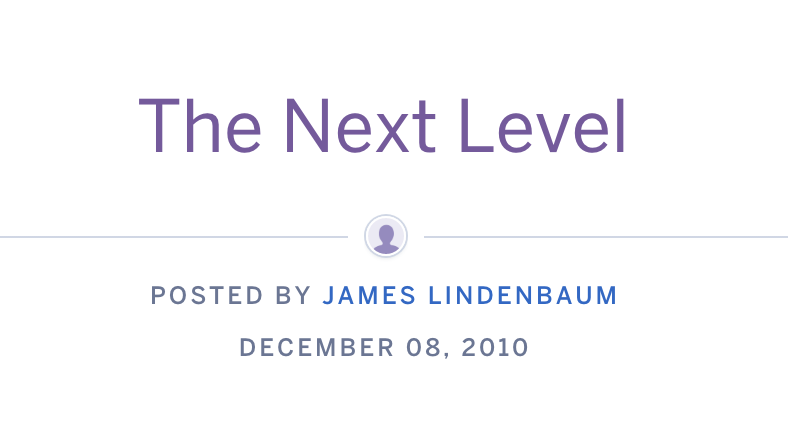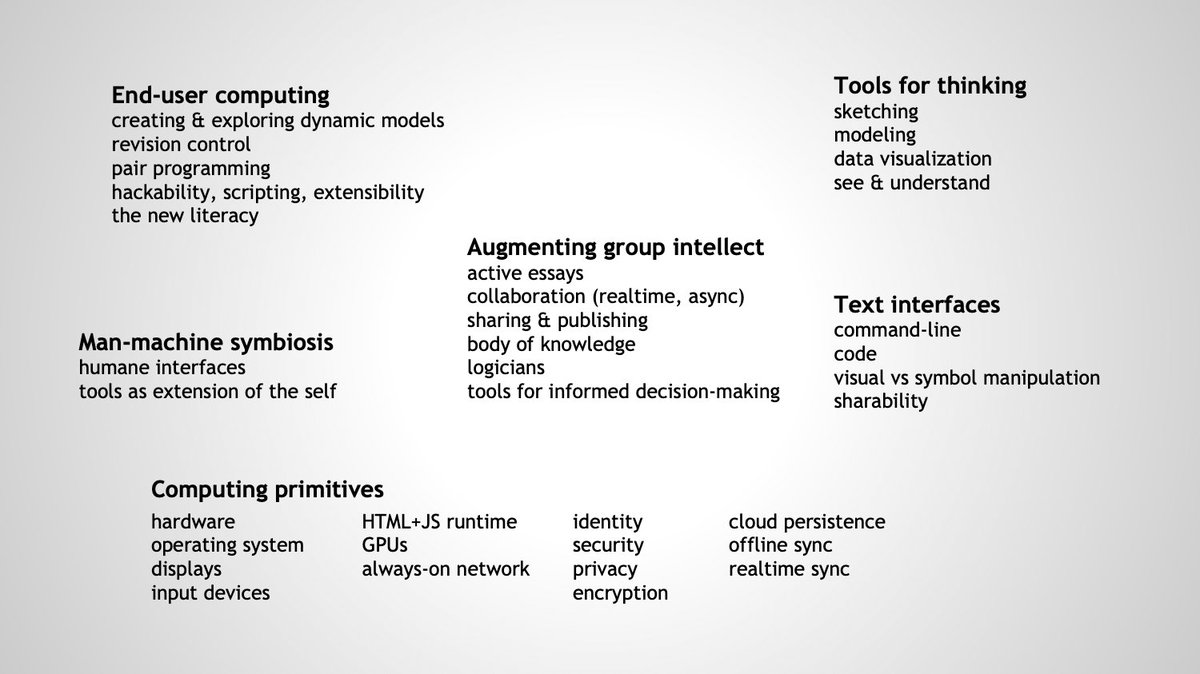
My thoughts on the emerging ”tools for thought” community
↓
↓
I've been lucky enough to be part of many computing communities over the years: BBSes in the 1990s, Linux/open source in the 2000s, Ruby/agile/web in the late 2000s, the Berlin startup scene in the 2010s.
I define community as a group of people who share a passion in a topic and some values connected to that. This passion and values sets them apart from the mainstream.
The community emerges when they gather (physically or virtually) to bond over that commonality.
The community emerges when they gather (physically or virtually) to bond over that commonality.
(Aside to recommend The Art of Community: goodreads.com/book/show/2876…)
The Tools for Thought label comes from Howard Rheingold's 1985 book: mitpress.mit.edu/books/tools-th… — and the visionaries referenced here (Engelbart, Kay, Licklider) are heroes for this community.
More current reads to get started learning about tools for thought:
▸ How can we develop transformative tools for thought? numinous.productions/ttft/ by @michael_nielsen and @andy_matuschak
▸ Computers and Creativity mollymielke.com/cc by @mollyfmielke
▸ How can we develop transformative tools for thought? numinous.productions/ttft/ by @michael_nielsen and @andy_matuschak
▸ Computers and Creativity mollymielke.com/cc by @mollyfmielke
Also a plug for my own podcast on the topic: museapp.com/podcast/
For me, tools for thought is about seeing computers as having untapped potential for helping humans be more thoughtful, creative, and fulfilled in their intellectual pursuits.
And contrasting to other parts of tech and computing…
The difference to consumption computing (social media, TV/music, games, e-commerce) is obvious.
The difference to consumption computing (social media, TV/music, games, e-commerce) is obvious.
More subtly, TfT differs from classic productivity software which tends to focus on organizing.
Calendars, todo lists, email, group chat, project management—all important, but these things are not directly helpful with thoughtfulness or creativity.
Calendars, todo lists, email, group chat, project management—all important, but these things are not directly helpful with thoughtfulness or creativity.
Tools for thought overlaps heavily with HCI (human-computer interaction) academia, independent research, and open source.
But also has its commercial component in products like @NotionHQ, @figmadesign , @RoamResearch, @mymind, @MakeSpaceTeam, @rem_note (and my own @MuseAppHQ).
But also has its commercial component in products like @NotionHQ, @figmadesign , @RoamResearch, @mymind, @MakeSpaceTeam, @rem_note (and my own @MuseAppHQ).
Unlike some other communities which seem to be all-in on capitalism (e.g. Silicon Valley) or all-in on public goods (e.g. open source, academia), tools for thought blends both. I like that.
Another break from old-school productivity software is vibe.
TfT software and its creators project their own unique vibe. There was only one vibe of these older tools (Word, Photoshop, etc): utilitarian.
TfT software and its creators project their own unique vibe. There was only one vibe of these older tools (Word, Photoshop, etc): utilitarian.
• • •
Missing some Tweet in this thread? You can try to
force a refresh







